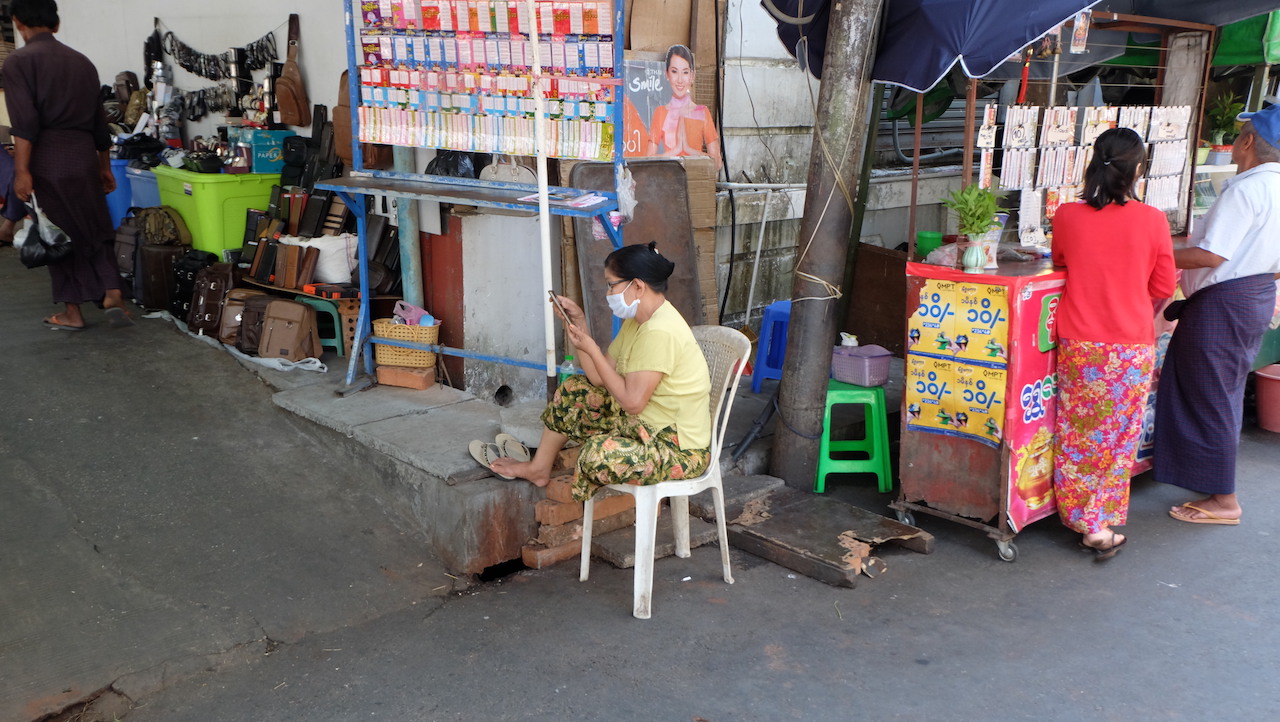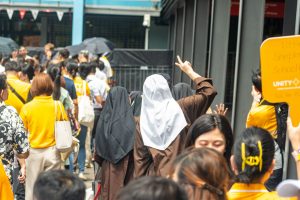Yesterday, the busiest streets in Myanmar’s busiest city were just that. Stray dogs dodging trishaws, beer-swilling men laughing in barbecue stations, mingling in tea shops, coughing at cheroot stalls.
Apparently a deadly virus is ravaging the world, but downtown Yangon remains unbothered because the Golden Land is ‘officially’ free of Covid-19.
A chief doctor is among those who believe a force field of prayers protects the Buddhist nation. It is more the lifestyle and diet, explained the government spokesman, inferring that oily curries may be Covid-19’s kryptonite.
When he added that the blitzkrieg of germs can be halted by a lack of credit card usage, I looked down at my filthy 100-kyat note and turned for reassurance to Myanmar’s homepage—Facebook—where videos show senior monks in helicopters and hot air balloons sprinkling holy water over parts of the country.
Many continue to swallow the government line that somehow the contagion has stopped at China’s porous 2,100-kilometre border with Myanmar. The virus is not here, they said, until last night, when it was.
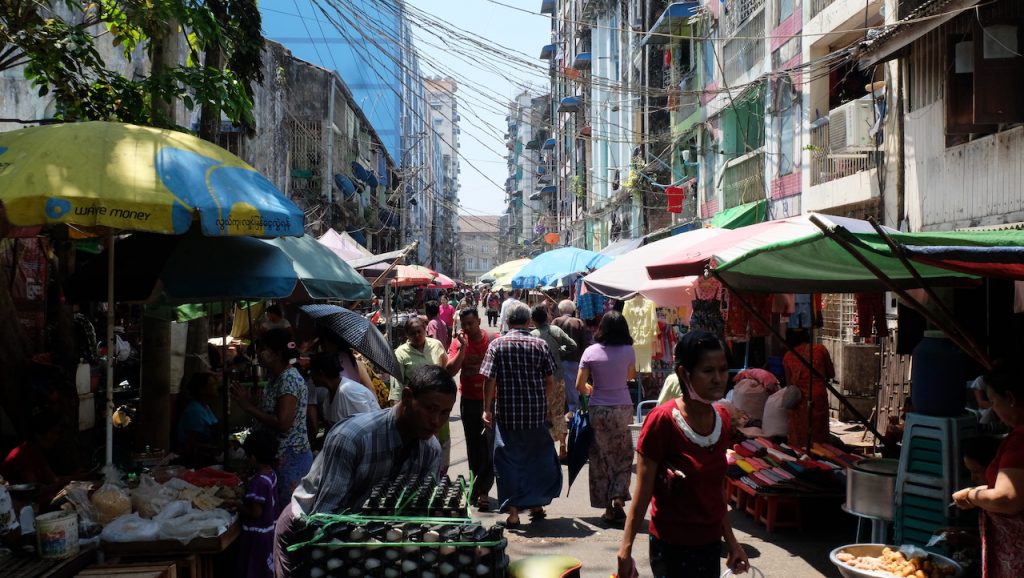
In late January, Myint Maung, a prominent politician in southern Myanmar, suggested that the vaccine may lie with onions. The punchy flavour would knock out the virus, according to a Facebook post he shared.
Myint Maung was criticised by his peers, but the month ended on a joke, as nurses at a major Yangon hospital were photographed looking up at a projector during a seminar.
“Don’t be so afraid of the coronavirus. It won’t last long because ‘made in China’,” read the slide.
But it was fine anyway because the vaccine was in fact peppercorns—seven of them—placed on the tongue, or a dose of one lime and three palm seeds, monks told the public, according to the New York Times.
To see if he agreed, I phoned a well-known monk whose Yangon meditation centre has been turned into a quarantine site with his blessings.
He was too tired to talk with me, but his helper—who asked for anonymity—said it was fake news.
“There’s no evidence those monks really said that,” he insisted, adding that, “people are a little worried but not panicked like in other countries.”
Perhaps, like a doctor at Yangon’s North Okkalapa General Hospital told the media, prayers had stopped the virus.
“The doctor must be a Buddhist,” he explained. “He believes that if you do a good deed, it can prevent something bad.”
Another way of explaining the so-called luck would be the lack of testing, which fits with the country’s shortage of testing kits and equipment. As of March 25, 238 tests have been done on a population of 54 million, and a government committee reportedly approved each test until recently.
But not everybody has been lucky. Arguably the watermelon traders were the first Covid-19 victims in Myanmar, as on January 31st 200 trucks full of the fruit arrived at the China border only for no Chinese buyers to show up.
In Yangon, melons flooded the markets, eventually pushing authorities to hold a five-day melon fair. On my return from the countryside, I hopped in a truck carrying two families who had just snatched a fine deal on four muskmelons.
They were adamant I tried some; it was the most succulent, sweet, refreshing fruit I had ever tasted in my life.
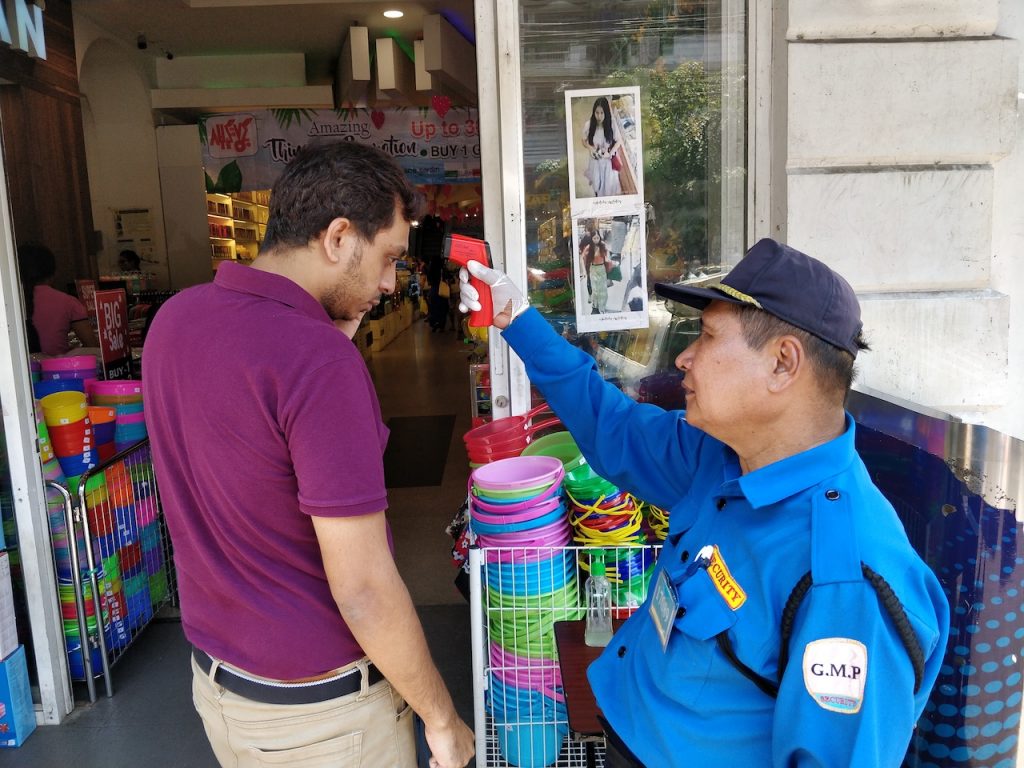
As we entered February, Myanmar had its first suspected case: a Chinese national who arrived in Yangon on board a flight from Guangzhou.
It was a wake up call because Myanmar didn’t actually have the ability to test the man for coronavirus. His samples were sent to a laboratory in Bangkok, and he tested negative.
More suspected cases sprang up across the country—a man in Rakhine who visited Yunnan province, a couple and their baby in Shan state, a Taiwanese teenager in Yangon.
Despite my steady intake of onions, I also developed a fever, sore throat, and my muscles ached enough for me to stay in bed, where I slept through day and night.
With no cough or breathing problems, my illness felt like an ordinary flu, though on reflection, at least a dozen other friends had similar symptoms around the same time. Now we look back and wonder, was it?
The government began banning visas on arrival for Chinese travellers and extricated Myanmar students from Wuhan, the epicentre of the outbreak.
They were quarantined in an unused hospital in Mandalay, said an official, who tried to dispel fears of a spread by assuring that security personnel would shoot anyone who approaches.
Ethnic armed groups in northern Myanmar were also doing their bit by screening temperatures and imposing travel restrictions. The biggest, the United Wa State Party, runs a de facto independent region about 42 times the size of Singapore on the China border.
By mid-February, two camps had emerged. The first believed Covid-19 was working its way through the population, taking Myanmar towards the verge of a deadly sneeze that everyone hoped would never come, because nobody had a tissue (or a robust healthcare system) and nobody wants a military accused of genocide to step in.
The second camp felt Myanmar was an exception. The big fat zero had developed a fan base while the government narrative attracted a strange sense of nationalist pride.
On February 20, the government announced it was capable of independently testing for the virus. Four days later, the health ministry proposed a new law banning health officials from talking about the virus.
As the outbreak ambushed countries around the world, we felt the tide rush out beneath our feet. Right now, we are waiting for the tsunami to hit.
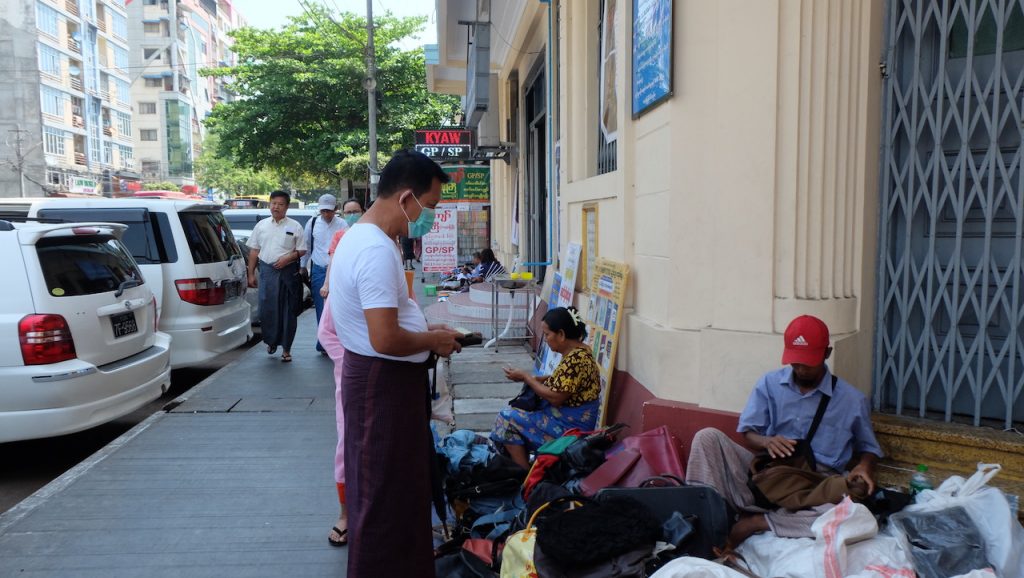
The garment industry is now on its knees. After weeks without raw materials from China, factories have been seeing orders cancelled from Europe, causing thousands of workers to lose their jobs.
Like in other countries, the tourism industry is shattered, and though tour operators suspended trips for travellers from China, exasperated protestors shouted that people were still crossing the land borders.
Fortunately, Myanmar still does not have the coronavirus, assured the government. But, prudently, the military cancelled its annual parade and unelected, uniformed soldiers attended parliament in surgical masks, making for a surreal image.
By mid-March, Aung San Suu Kyi stopped shaking hands at the public meetings she soon stopped holding. Myanmar cancelled its mid-April new year celebrations, which come in the form of massive water fights and makeshift music stages.
People began dying in quarantine of a “pneumonia-like” disease. About 50 people in a village in Shan state fell ill with coughs and running noses on March 16. But there was no coronavirus, Suu Kyi said in a televised address.
The UK embassy in Yangon did not seem convinced. Britons should leave Myanmar immediately because the virus is expected to pressure Myanmar’s medical facilities, “and they may not be able to offer routine care,” it posted on Facebook a week ago.
Myanmar accounts were incensed at the suggestion their country would struggle with an outbreak, their comments fortified with special bile for their country’s former colonial master.
But now, unfortunately, we will see how the country will manage.
Perhaps self-conscious of being the country with the biggest population yet to declare a coronavirus case, on Monday night it confirmed two: Myanmar men, who had recently returned from the UK and the US respectively.
A third case was confirmed on Wednesday morning.
Within hours authorities imposed mandatory quarantine for all travellers entering the country and compulsory medical certificates declaring the traveller tested negative for Covid-19 before they step on the plane.
Immediately, people rushed to the supermarkets to stock up on supplies, but the real uncertainty is the future of the internally displaced people across the country: of the people in Yangon’s slums, of the trishaw drivers, tempura vendors, recyclable trash pickers, of the people whose livelihoods come from the streets.
How will they cope with Covid-19?
Or perhaps, worse, how will they cope with a lockdown?

